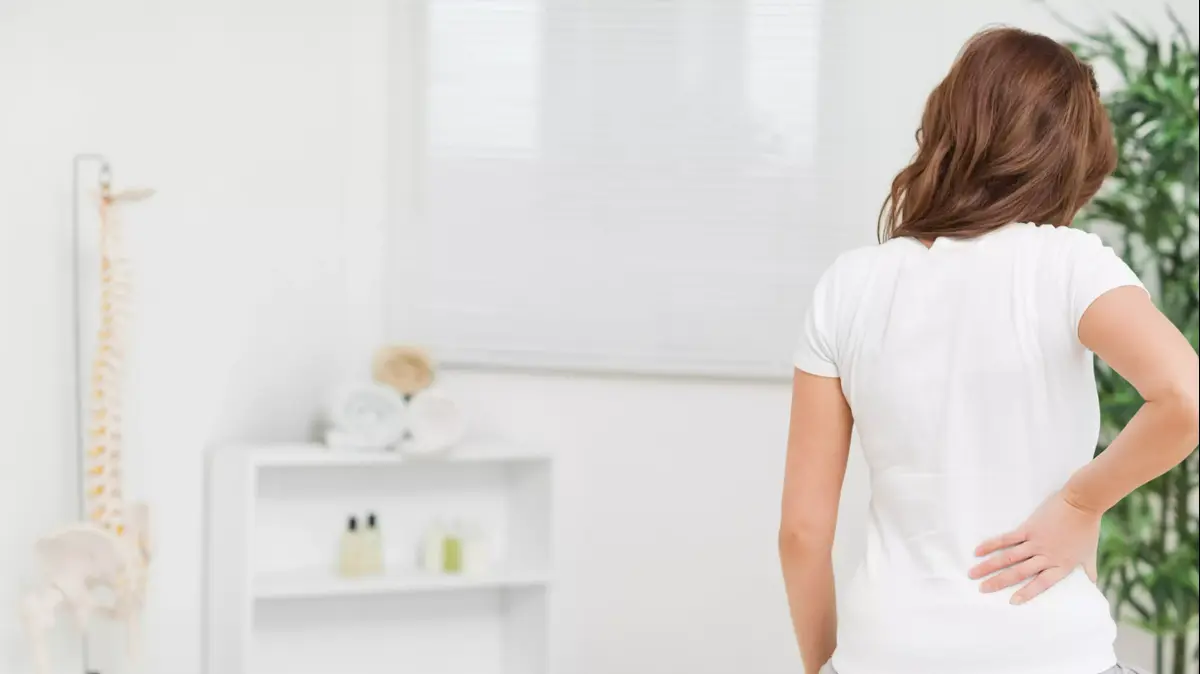Snow in Hermon.
December 26, 2022 (Hermon website)
In addition to the cold and rain, winter also brings with it shorter days, fewer hours of light and many more hours of darkness.
For many people, the combination of these things brings with it a feeling of despondency, which sometimes turns into more than that - winter depression (or in its real name, Seasonal Affective Disorder).
Although it is a disorder that is widespread mainly in colder and more northern countries (in fact, the distance from the equator is the relevant factor), according to estimates, about 100 thousand Israelis suffer from the disorder.
The symptoms of winter depression are the same as the symptoms of major depression, and they include: feeling tired and lacking energy, stress and anxiety, decreased libido, social withdrawal, sleep disturbances, prolonged sleep or excessive sleepiness during the day, changes in appetite - including a strong desire for carbohydrates and sugars, Lack of interest and pleasure in activities that the person enjoyed in the past, tendency to cry and changes in mood.
When the rain falls and knocks on the window it's sad and heavy and it's hard for me to sleep.
An illustration of a woman looking at the rain (Photo: Giphy)
Despite the identical symptoms, there is one major difference between winter depression and major depression, and that is the time of onset.
If the depression appears at the beginning of winter and goes away when spring begins, it will be diagnosed as winter depression.
The difference then, is that major depression appears regardless of the seasons.
In order for winter depression to be diagnosed, it must be checked if the symptoms, and their withdrawal, have returned at least in the previous two years, and the number of seasons in which the depression appeared must be greater than the number of seasons in which it did not appear.
More in Walla!
8 signs that you suffer from mild depression
To the full article
The treatment of winter depression is also quite similar to the treatment of major depression, and includes psychotherapeutic intervention and sometimes pharmaceutical intervention.
But even here, there is an important difference.
The shortening of daylight hours and the lengthening of dark hours have a real physiological effect.
The early hours of darkness signal the body to produce melatonin (a hormone that promotes sleep) earlier, which precedes and increases our feeling of tiredness.
But this is not the only effect.
The increased production of melatonin sometimes comes at the expense of the production of another neurotransmitter - serotonin - which is related, among other things, to the regulation of mood and its improvement.
By combining these two things, we feel more tired and sleepy due to the effect of melatonin, and depressed and nervous due to the decrease in the amount of serotonin.
It can be assumed that this mechanism is perhaps an evolutionary remnant of winter sleep that exists in other mammals, and indeed similarities can be seen in signs such as seclusion, avoidance and excessive sleep.
These physiological effects also lead to other things that can be done in the treatment of winter depression besides psychotherapeutic and medicinal intervention:
1. Exposure to light:
try to be exposed to light as much as possible (preferably sunlight), and as early as possible.
Exposure to light slows down the conversion of serotonin to melatonin and thus can help our mood and reduce the feeling of fatigue.
More nutritious food, less chocolates.
A bowl of soup (Photo: Giphy)
2. Cut back on sugars:
Chocolate can comfort us, but it's bad for us.
The reason for this is that sweet foods may improve mood because they cause a jump in the levels of sugar and serotonin in the brain.
But this is temporarily good and ultimately works against us, because immediately after this rise there is a sharp decline that causes us to fall in mood.
3. A balanced diet rich in complex carbohydrates during the day:
complex carbohydrates will help maintain stable blood sugar levels, and therefore will help maintain constant serotonin levels, so you should also eat in an orderly and regular manner.
And here are some more things you should eat in the winter:
all the reasons to eat soup, and 3 particularly healthy and delicious suggestions
6 dishes that will warm you this winter and keep you full
4. Sports activity:
Studies suggest that walking for half an hour every day, or walking for an hour three times a week, results in significant relief in the symptoms of mild to moderate depression.
If you can train in bright light conditions, that's even better.
This study found that sports activity in bright light improves social functioning, relieves depressive symptoms, and improves mental health and vitality.
5. Go outside:
It's true that going outside when it's cold and raining doesn't sound like the most appealing thing, but even in these conditions it can improve your concentration, help you lower your stress levels and reduce symptoms of depression.
6. Plan a vacation:
Yes, even if it's the middle of winter and it will only be in four months.
This study found that even planning a vacation results in a significant increase in mood.
If winter makes you depressed, remember that it is much more common than you think and that there are quite a few things you can do yourself to improve the situation.
If this does not help and you still feel depressed, consider seeking psychotherapy.
health
psychology
Tags
winter
depression








